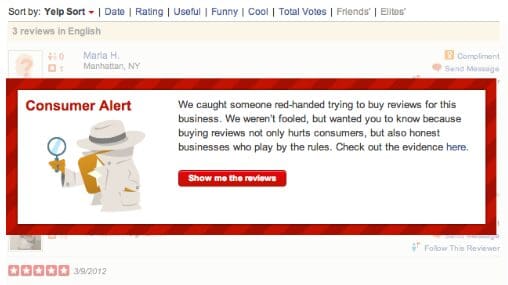How to Get More Client Reviews (Without Breaking Any Rules!)
- Published on
- 6 min read
-
 Matt McGee Editor, Agent Resource CenterClose
Matt McGee Editor, Agent Resource CenterClose Matt McGee Editor, Agent Resource Center
Matt McGee Editor, Agent Resource CenterMatt McGee is HomeLight's Agent Resource Center managing editor. He hosts HomeLight's weekly podcast, The Walkthrough, which delivers actionable, no-hype advice from the best real estate agents and top industry experts in the country. He previously served as Editor-In-Chief for three Third Door Media digital publications: Search Engine Land, Marketing Land, and MarTech Today. Matt's a Pepperdine University grad who's been surrounded by real estate his entire life: his wife and sister are active agents, as was his dad for almost 50 years.
Raylene Lewis remembers the transaction to this day.
She was working with a woman who had to sell her home per a judge’s orders after a divorce. Lewis, a top agent in College Station, Texas, got the home sold within two weeks and for $2,100 above asking price. The sale went exactly according to plan. And then the homeowner went online and gave Lewis a one-star review.
“I thought she would be happy,” Lewis recalls. “We followed the order of the judge. We did everything. She got more money than what she anticipated. And she literally gave me one star and I asked her, ‘Why did I get one star?’ She said, ‘I never really wanted to sell my house.’”
Fortunately, Lewis has been active throughout most of her 19-year real estate career in encouraging clients to review her online, so one unhappy client — unhappy through no fault of Lewis’s — leaving a bad review had no impact on her reputation. Today, Lewis says about 30% of her business comes from buyers and sellers who choose her after reading online reviews.
The numbers are similar for Andrea Swetland, a top agent in San Francisco, who says she’s hearing more and more from clients who found her after reading reviews online.
“I would say [that happens] maybe three or four times a month, whereas before I wouldn’t even notice it,” Swetland says.
“It might’ve been three or four times every year that people said that. I’ve had a couple of people tell me that specifically in the last month — they found my information and then reading the reviews is why they decided to call me.”
Both Lewis and Swetland have systems in place that make it easier for them to earn more client reviews and testimonials. We’ll share their processes and advice below and, at the end, we’ll make you aware of some important guidelines that should inform every agent’s approach to client reviews.

6 Tips to Get More Real Estate Client Reviews
Both Lewis and Swetland agree that getting more client reviews and testimonials begins with having the right mindset.
1. Get over your fear of looking pushy and bothering your clients.
You probably know, or maybe you are an agent who doesn’t ask for reviews because it looks too self-promotional or you don’t want to bother busy clients.
Get over it.
“Most clients are more than happy to provide a review and share their personal experience for other people because when they have a good experience, they want to share that so that other people have a good experience, too,” Lewis says. “Don’t think that your client is ever too busy to do a little shout out for you.”
Swetland suggests you recognize that your client might be busy. “When I make these requests, I always acknowledge that they’re really busy and I try to mention why [reviews are] important to me,” she says. “I’ll say, ‘I know you’re busy, I don’t want to bug you, but it’s so important to me that if you had a good experience for you to share that with other people.’”
2. Make the review “ask” a primary piece of your transaction process.
If you want to get more client reviews, you have to be intentional. Swetland has a 4-step process for requesting reviews:
- She tells all new clients early in the relationship — but not at the first meeting unless she’s really comfortable with the client and vice versa — that she plans to ask for a review later. “I ask them ahead of time, like ‘When we’re done, if you’re happy, I’d really like to get a review.’”
- She reminds them again as the closing date approaches.
- After closing, she sends an email asking for the review.
- If needed, she sends a reminder 30 days later in case the client was too busy right after closing.
“You can’t be passive” about asking for reviews, Swetland says. “You have to be intentional and you have to gently remind people because this is not their priority.”

3. Don’t DIY! Use a review platform to increase efficiency.
Lewis uses Real Satisfied, a customer satisfaction platform that’s popular among real estate agents, to send out surveys and review requests to her clients.
“Real Satisfied does a great job of reaching out,” she says. “The questions are not too long. And one thing that I really like is that not only can the person rate you in terms of stars, but they can say ‘I want to leave a comment or a testimonial, or I don’t.’”
A good customer satisfaction or review management platform should offer a number of features that make it easier for agents to collect, respond to, manage, and even use client reviews in your marketing. See our related article, 20 Review Management Platforms for Real Estate, to learn more about the platforms available and what to look for if you choose to use one.
4. Choose your review sites wisely. (Your client’s email address matters!)
There are a lot of places where a client can review you, but they probably won’t go out of their way to write a review on more than one or two sites. So you have to be smart in choosing which sites to focus on when it comes to getting reviews.
Zillow and Realtor.com are obvious options because home buyers and sellers are often looking at agent profiles there. But on both sites, your client will need an account to post a review. Some may not want to bother signing up just to say nice things about you, and clients that already have an account may have forgotten their username or password. That all combines to make it harder to get reviews on Zillow and Realtor.com.
Facebook and Google are also obvious options for collecting reviews. There’s less friction because almost everyone is likely to have an account on one or both, and they’re probably logged in to their accounts every day.
Swetland likes clients to review her on any of five sites: Zillow, Facebook, Yelp, Redfin, and HomeLight. (She also adds reviews from those sites on RateMyAgent.com.) Yelp is important to her because it’s a popular site in the Bay Area; she has 60 5-star reviews there at the moment. Redfin is also important for the same reason, and Swetland currently has more than 50 5-star reviews on her Redfin profile. Agents in parts of the country where Yelp isn’t as popular, or where Redfin isn’t active, should skip those and focus on other sites.
By using Real Satisfied, Lewis only needs to ask clients to review her on that platform. If they do, their reviews are automatically distributed to certain third-party sites such as Realtor.com, the Houston Association of Realtors (Lewis has more than 140 reviews on both) and others. She also has about 20 reviews on her Facebook Page and says she’s received referrals from other agents because of the reviews there.
When asking for reviews, pay attention to your client’s email address. If your client uses a Gmail address, it’ll be easier for them to write a review on your Google My Business profile because they have an account and they’re probably already logged in. If your client has a Yahoo or some other email address, they may not have (or may not use) a Google account, which makes it less likely they’ll want to review you there.
5. Don’t take reviews personally. Don’t sweat the ones that are less than 5 stars.
This gets back to mindset. Both Lewis and Swetland have learned over the years that some people just won’t give you a 5-star review no matter how well the transaction went, because five stars is perfection and nobody’s perfect.
“There is no reason to be devastated if you just poured your heart and soul into a client and they gave you four stars instead of five,” Lewis says. She also says an occasional review that’s less than five stars can be a Good Thing because it makes your reviews more believable. “If you have all five stars forever and ever, that’s just unrealistic. There’s no way [you’re] going to get five stars every single time.”
Swetland also warns agents not to take it personally when a client doesn’t say as much as you want when they review you.
“There are some reviews I get where I’m like, ‘That’s it? That’s all they put on there? I totally thought that person would say this and this and this.’” She’s learning to “just be appreciative for every rating you get, every feedback you get.”

If your client didn’t say as much in the review as you hoped, this next tip offers a solution…
6. Reply to every review you get and fill-in missing details.
If a client takes the time to say something nice about you online, you should acknowledge their comments — not just as a matter of courtesy, but also because it can be good marketing.
When you reply to a review, understand that your reply is more for future prospects than for the client who left the review. When other buyers and sellers look at your reviews, they’ll see your replies and that gives you a chance to fill in some of the details that the client may have left out.
For example, if you get a 5-star review from a client that says something like
“We had a wonderful experience working with (YOUR NAME). We needed to get our home sold quickly so we could move to a new job out of town. I highly recommend (YOUR NAME) if you’re looking for a real estate agent.”
That’s wonderful, but you can add some context that will help future clients learn about the level of service you provide with a reply like this:
“Thanks so much, (CLIENT NAME)! We loved working with you. I’m so glad we were able to get your house sold in just 11 days and for $3,500 above asking price! We’re thrilled that our marketing system worked like a charm to create demand and attract the right buyers.”
The original review credits you for getting the home sold quickly. Your reply adds in details about exactly how fast it was, the selling price, and how your marketing program made a difference. Together, the review and your reply are a much more compelling marketing pitch as prospects are looking at your reviews.
3 Review Guidelines You Need to Know
Getting more client reviews is great, but you should try to do it in a way that won’t get you in trouble with the sites where people are writing reviews. As you create or expand your process for collecting client reviews, keep the following in mind.
1. Yelp’s guidelines don’t allow asking for reviews.
If Yelp is an important site for you, be aware that it has the most stringent policies when it comes to how you get more reviews. The Yelp Support Center has an entire page under the heading “Don’t Ask For Reviews.” They also don’t want you offering money, gifts, or any kind of incentives in exchange for reviews. If they find a business owner violating these guidelines, they’ll put a Consumer Alert on your Yelp profile telling viewers what you were doing, and they sometimes call out offenders on their blog.

2. FTC guidelines don’t allow incentivizing reviews.
In recent years, the Federal Trade Commission has made consumer reviews an enforcement focus (see the “Consumer Reviews” section of this 2019 recap article on FTC.gov). The FTC warns business owners against offering incentives for reviews:
Recent FTC settlements have blown the whistle on a host of deceptive practices: reviews posted by family members, friends, and employees without disclosing their connection to the company, paid-for reviews posted by third-party businesses to boost a product’s ratings on major online retailers, and offers of undisclosed prizes to people who send in testimonials. To avoid a review snafu, marketers should exercise care not to skew the system.
3. Google’s guidelines also discourage incentives to get reviews.
Like the FTC, Google also doesn’t want business owners to offer customers something in exchange for a review. This Google My Business Help page offers guidance on getting more reviews, but includes a warning:
Business owners shouldn’t offer incentives to customers in exchange for reviews.
What all this means is that the contest you’re thinking about doing, the one where people earn entries by reviewing you online, is against someone’s guidelines — definitely the ones listed above, and maybe others, too. If someone outs you, or if you get caught, you risk repercussions that might range from large fines to bad headlines to having all your reviews (but one) removed to nothing at all.
Ultimately, you have to decide what you’re comfortable doing in the name of getting more reviews. Our goal here is to make sure you have a better understanding of the risks and rewards, and how to get them without violating anyone’s guidelines.
Reminder: See our accompanying article, 20 Review Management Platforms for Real Estate, to learn about the various platforms that can make it easier to get more reviews and testimonials.
Learn More on The Walkthrough
For more about getting and using your real estate reviews and testimonials, don’t miss our podcast below.
Header Image Source: (Amelia Bartlett/ Unsplash)
